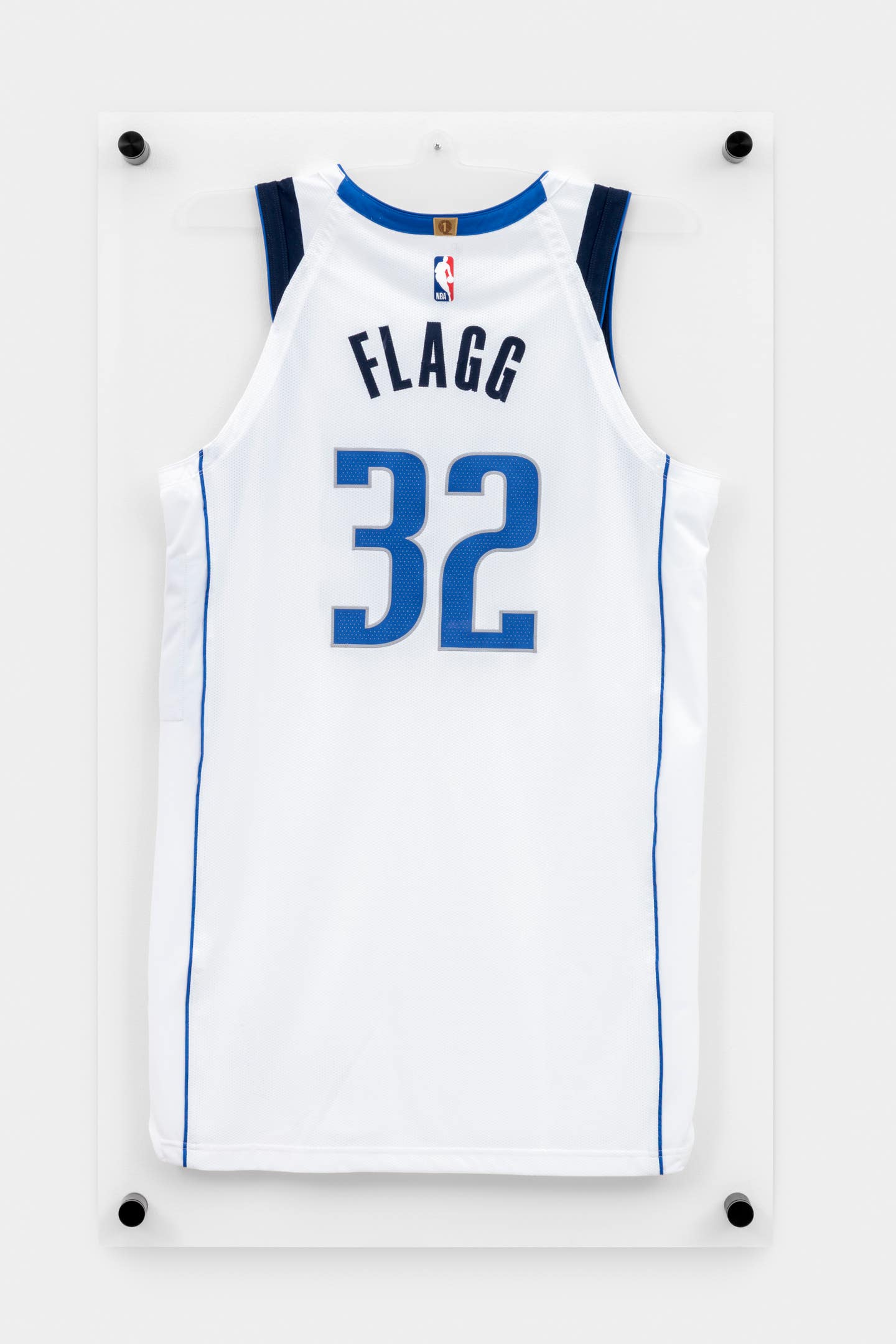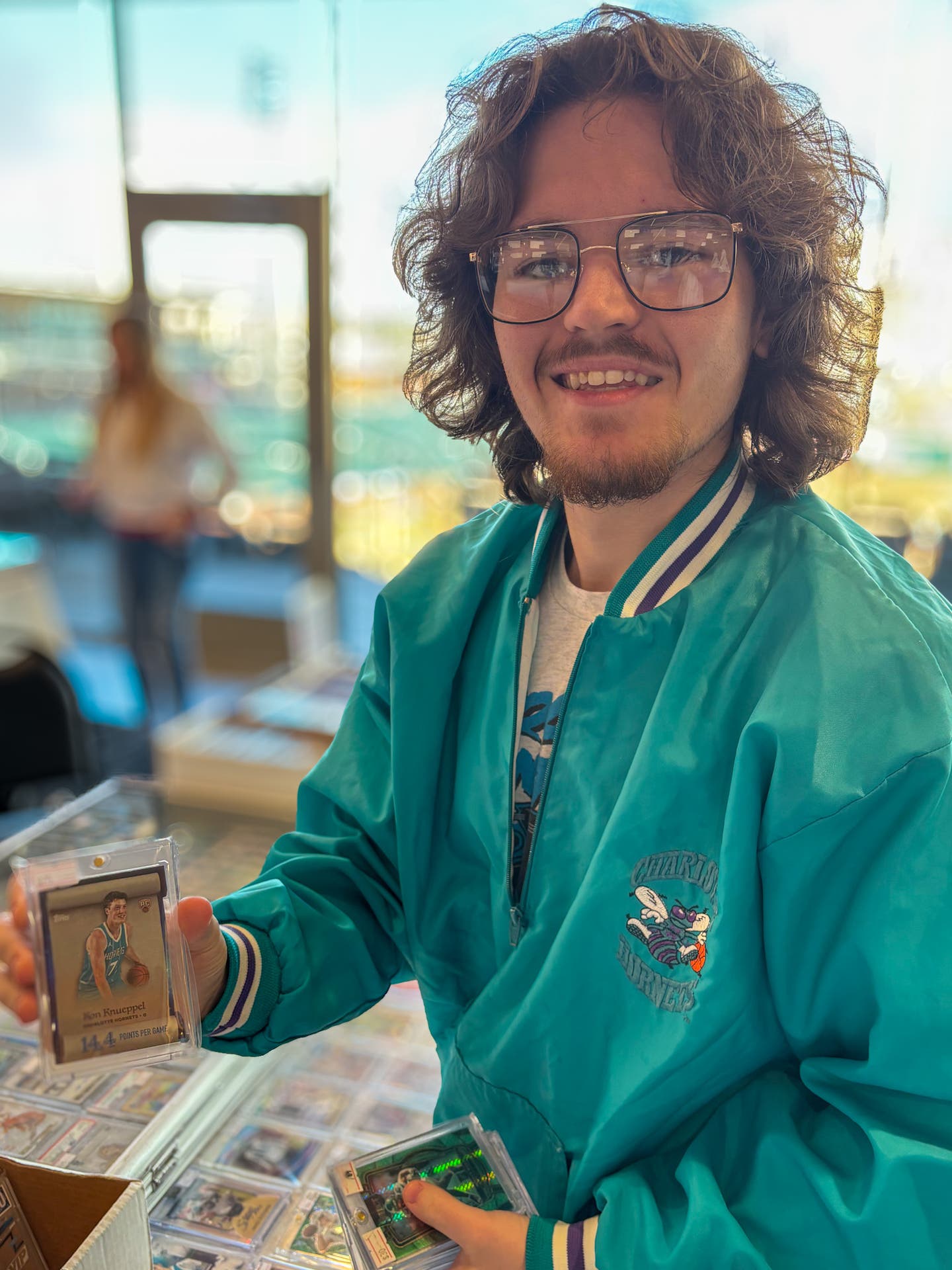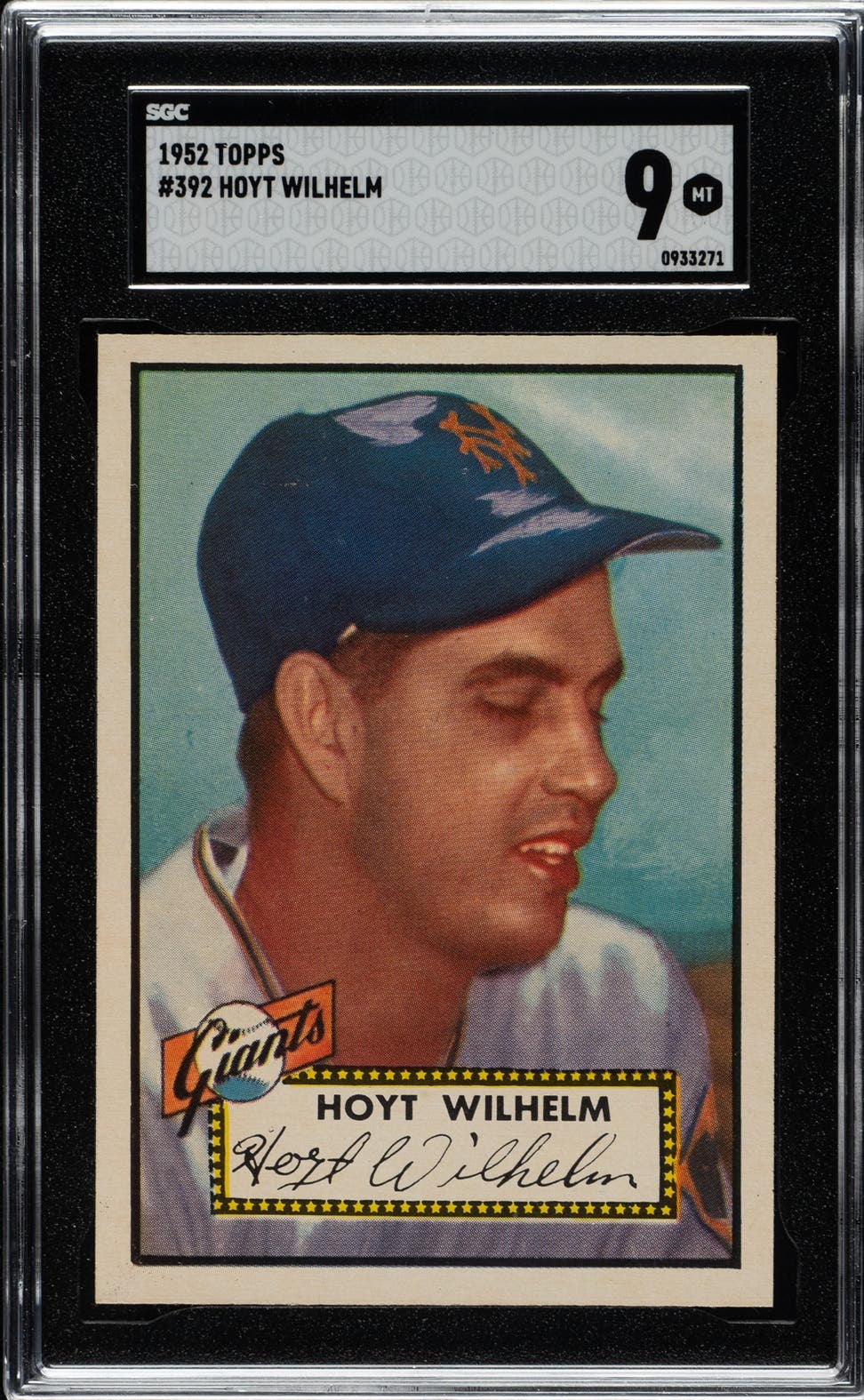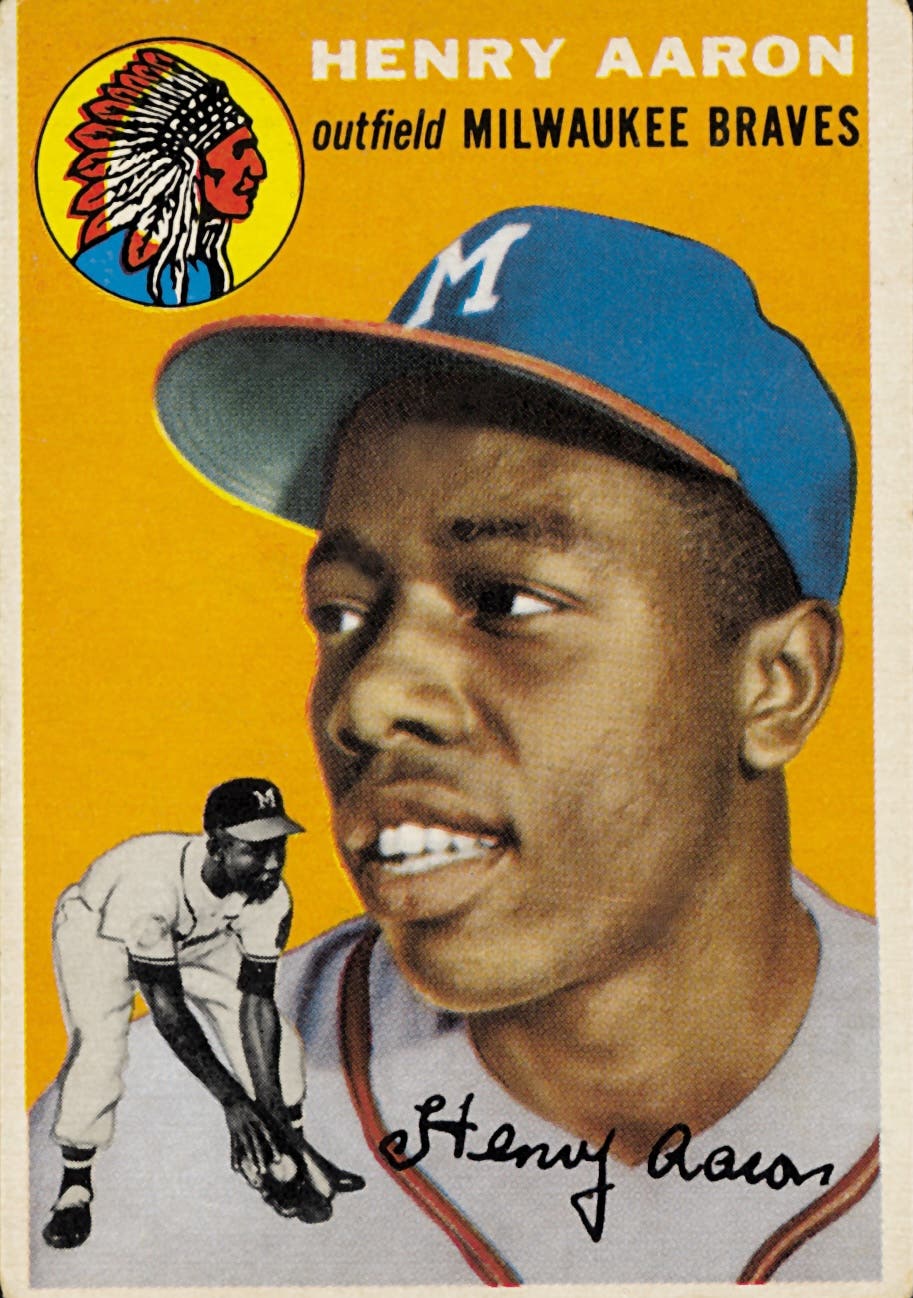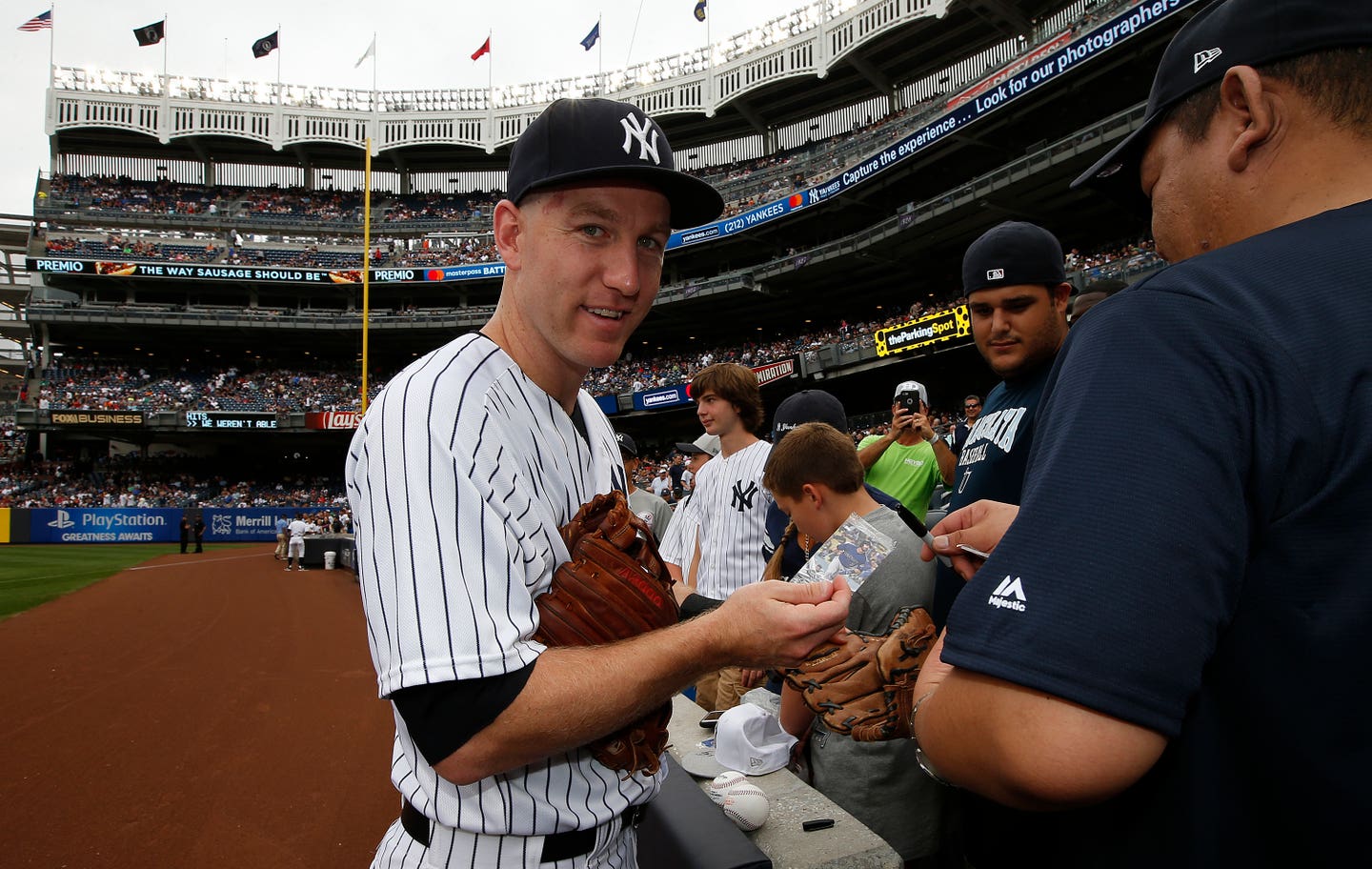
News
From Topps and Fanatics to dozens of card shops, the sports collectibles hobby has a major presence in NYC
It was a recent Tuesday afternoon in New York as a crowd packed into Bleecker Trading, a card shop in the city’s trendy West Village neighborhood.
Bleecker Trading has been bustling with activity ever since it opened its New York storefront in 2020. The shop—divided into three sections—is part store (where cards are sold), “social club” (where trade nights are held), and also features a backyard (for parties and a monthly collectables show).
“It’s always busy in here,” said store manager Mike Kowpak. “It’s New York!”
Bleecker Trading is just one of many card and memorabilia shops that have popped up across New York, the largest metro area in the country that includes the suburbs north and east of the city, New Jersey and Connecticut.
A bustling metropolis known for its rich sports culture, New York is home to a variety of card stores and auction houses. These places offer a treasure trove of items that cater to the interests and deep pockets of avid collectors. From trading cards and sealed wax to autographed photos and balls, a wide range of authentic and high-quality sports memorabilia can be had in The City That Never Sleeps.
As the first Fanatics Fest prepares to take place at New York’s Javits Center Aug. 16-18—where superstars such as Tom Brady and Derek Jeter are scheduled to appear—the Big Apple’s role in the growing sports hobby has taken on bigger importance. For many, the Big Apple reigns supreme when it comes to the power and influence of the hobby.
“We want to be accessible to all people,” Kowpak said. “The New York location, for us, really is the most unique spot in the world. You have so many states within an hour driving from here and mass transit options.”
Kowpak said New York could very well be the biggest hobby hub in the country. Companies such as Fanatics and Topps have offices there and auction houses such as Goldin are based in the area. Heritage Auctions and PSA also have offices in the NYC area.
“On the business front, you have a lot of the people doing the behind-the-scenes stuff here,” he said. “That, in turn, helps breed people who are passionate about the hobby. Building out those card businesses has helped the hobby grow in New York.”
BIG APPLE HOBBY HISTORY
Before card collecting became popular in the 1980s, New York was home to the American Sports Card Collectors Association. The group of avid collectors held shows a few times a year. These shows became a precursor to the regional shows we know today.
Very few people made a living buying and selling cards until friends Rick Barudin and Buddy Kurzweil opened Sports Corner inside an antiques mall in Montvale, N.J., marking what is believed to be the first baseball card shop in the country.
This trailblazing tradition continues today. Alex Berzins, owner of Alex’s MVP Cards & Comics, opened his store in 1988. It remains one of the oldest hobby shops in New York.
“Having a shop that has been open this long is fantastic,” he said. “You get to see the kids that shopped in the ’90s come in now with their kids.”
Berzins said one of the best things about having a shop in New York is “teaching” people about collecting.
“We love introducing new people to collecting and teaching them how to preserve and protect their cards and different collecting styles,” he added.
New York has a long hobby history. The Topps Company can trace its roots back to the city in 1938, when businessman Morris Shorin’s four children—Joseph, Ira, Philip and Abram—transformed the company from a failing tobacco business into one that sold bubble gum. Although Topps would not produce baseball cards until 1951, by then the company’s headquarters in the Sunset Park neighborhood near the Brooklyn waterfront had already expanded.
It would be that same waterfront that would mark a notorious chapter in trading card history. The 1952 Topps set—the first one featuring New York Yankees star Mickey Mantle—became very popular when it was released. The packs contained six cards and a stick of gum.
The company printed two separate runs and embarked on a third. By the time the high-number series was released, children had already turned their focus to football. Sy Berger, who had pushed the company to print more cards, took the unsold inventory on the road, trying to sell the cards at carnivals for a penny apiece. There were few takers.
As a result, up to 500 cases of those 1952 cards were left over. The only place to store them was in the company’s Brooklyn warehouse at 254 36th Street. The cases sat there, gathering dust, until 1960. Topps needed the storage space and so Berger decided to have the cases tossed into the Atlantic Ocean off New York Harbor. Each unsold case—containing 24 boxes with 24 packs apiece—were loaded onto trucks and dumped into their watery grave.
“They were put in boxes,” Berger recalled in an SCD interview in 2010. “It took three garbage trucks. I would say 300 to 500 cases. All high series of 1952 Topps. I found a friend who had a garbage scow and we loaded three trucks-worth on the barge. I was out there with it a few miles out.”
In the decades since, Mantle cards have become one of the most coveted and valuable cards in all the hobby, fetching hundreds of thousands of dollars in high grades.
“Whoever thought they would have the kind of value that they would have?” asked Berger, who died in 2014.
The cards at the bottom of the ocean aren’t the only infamous incident involving cardboard that took place in New York City. It was in 1995 when the first Official All Star Café opened in Times Square, a restaurant that reflected the ’90s boom in theme restaurants across the country. Like the Hard Rock Café and Planet Hollywood, the restaurant featured sports memorabilia for diners to look at. Among the items on display under plexiglass was a Honus Wagner T206 card owned by actor Charlie Sheen, a collector and one of the stars of the 1989 movie “Major League.”
The rare 1909 tobacco card caught the eye of some restaurant workers in 1998. Thomas Gartland, the restaurant’s head chef, told Sports Illustrated in 2020 that “jealousy” and “greed” prompted him to embark on a scheme to steal the card. After fabricating a phony version, Gartland and two co-workers swapped the Wagner with a forgery.
Gartland’s nephew, Benny Ramos, took part by selling the card to a dealer for $18,000. Also stolen in that heist was Sheen’s other prized cards, including a rare 1904 card of Sherry Magee, an outfielder for the Philadelphia Phillies, and an uncut sheet of Goudeys that included a 1933 card of Napoleon Lajoie, a Hall of Fame second baseman with the Cleveland Indians.
The FBI arrested the men a year later. The All Star Café closed in 2007, six years after Sheen sold off the Wagner in 2001 for $75,000, a record at the time. Sheen said at the time that he was “deeply saddened that such precious artifacts” had been “mutilated by amateurs” for greedy purposes.
In 2022, the same Wagner card was auctioned off for $3 million.
A TOURIST DESTINATION
The New York area’s population of 20 million isn’t the only pool of potential collectors. People from all over the world visit New York—62 million alone in 2023—and some of them are in search of trading cards and collectables.
Rob Katz, owner of Bergen County Sports Cards in Bergenfield, N.J., said his store—just six miles from the George Washington Bridge that connects to Manhattan—being in the New York area draws people from all over the world.
“We had a family from Singapore here [in April]. It was the best! They bought lots of NBA product looking for [Victor] Wembanyama rookie cards,” said Katz, whose shop opened in 2022. “I also love seeing guests from Europe and South America who stop by looking for soccer product.”
Kowpak agreed, saying having an event space in the shop to host parties, player signings and trade nights has made it a destination for people across the region and country.
“We’re fortunate,” he said. “We’re close to two major airports and we have a ton of people who come for the events—tourists or people who fly up from Florida just two hours away by plane—we have been very fortunate. That has taken us to new heights.”
Berzins said visitors from other countries make an annual trip to his store seeking cards and collectables.
“Baseball and basketball are American sports that have become huge internationally and we get people in throughout the year to pick up stuff when visiting from places like Italy, Spain and Australia,” he said. “We have people that reach out to us before the annual trip each year to get stuff ready for them when their visit is approaching.”
Clemente Lisi



